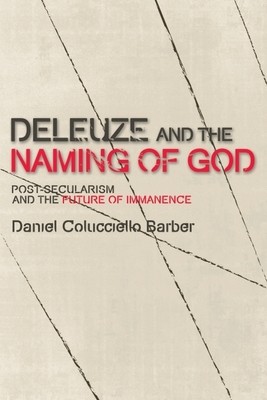
- We will send in 10–14 business days.
- Author: Daniel Colucciello Barber
- Publisher: Edinburgh University Press
- ISBN-10: 0748699783
- ISBN-13: 9780748699780
- Format: 15.2 x 23.4 x 1.5 cm, minkšti viršeliai
- Language: English
- SAVE -10% with code: EXTRA
Reviews
Description
Deleuze's philosophy of immanence vigorously rejects every appeal to the beyond. For this reason, it is often presumed to be indifferent to the concerns of religion. Daniel Barber shows that religion and Deleuze's thought are both motivated by a demand to create new modes of existence. Thus, the enemy of Deleuze's philosophy is not religion but the transcendent. Deleuze and the Naming of God shows how Deleuzian immanence is able both to oppose religious transcendence and to enter an alliance with immanent accounts of the name of God. In doing so, it shows a way out of the paralysing debate between religion and the secular.
EXTRA 10 % discount with code: EXTRA
The promotion ends in 22d.12:58:10
The discount code is valid when purchasing from 10 €. Discounts do not stack.
- Author: Daniel Colucciello Barber
- Publisher: Edinburgh University Press
- ISBN-10: 0748699783
- ISBN-13: 9780748699780
- Format: 15.2 x 23.4 x 1.5 cm, minkšti viršeliai
- Language: English English
Deleuze's philosophy of immanence vigorously rejects every appeal to the beyond. For this reason, it is often presumed to be indifferent to the concerns of religion. Daniel Barber shows that religion and Deleuze's thought are both motivated by a demand to create new modes of existence. Thus, the enemy of Deleuze's philosophy is not religion but the transcendent. Deleuze and the Naming of God shows how Deleuzian immanence is able both to oppose religious transcendence and to enter an alliance with immanent accounts of the name of God. In doing so, it shows a way out of the paralysing debate between religion and the secular.


Reviews